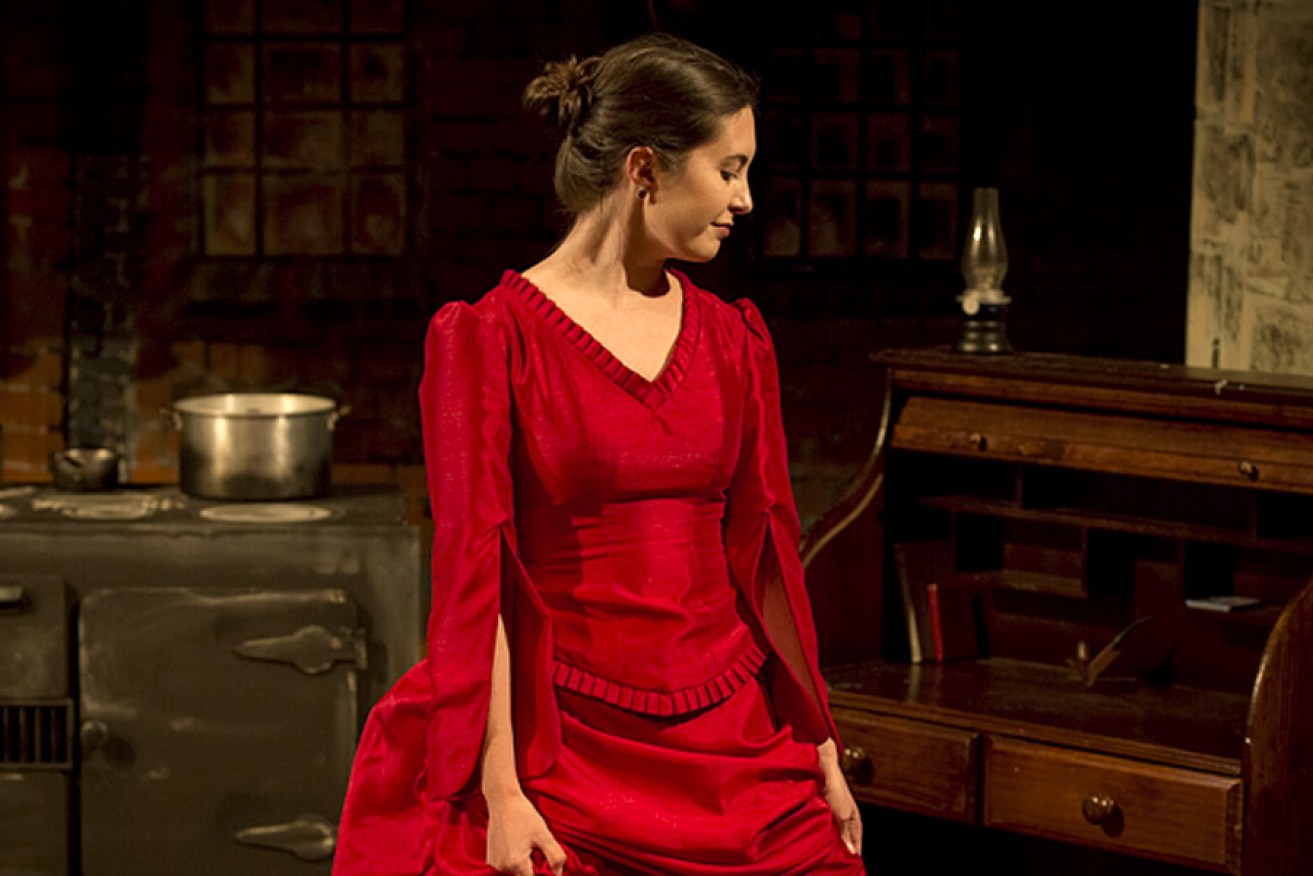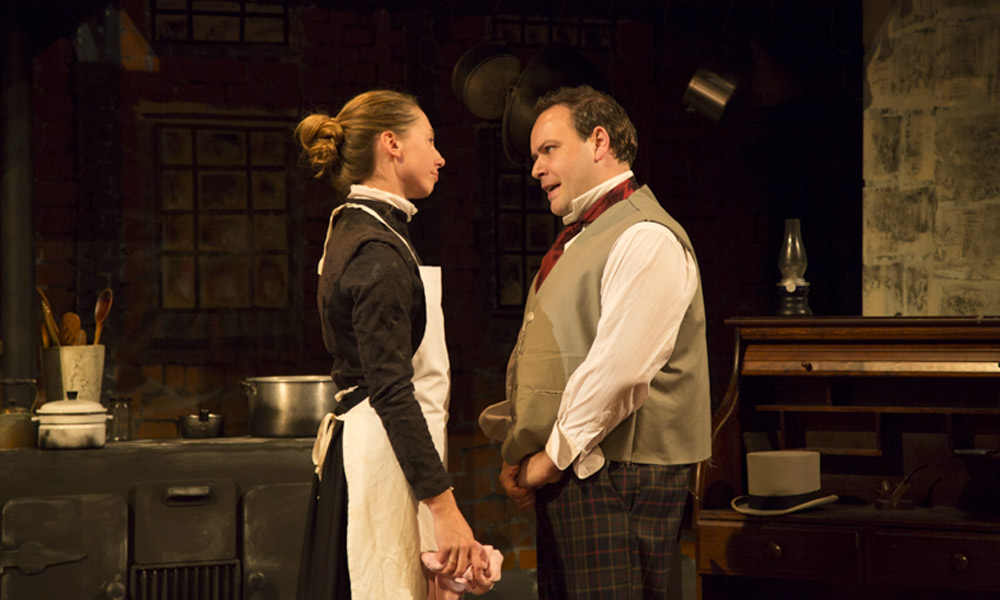Performing a 19th century play and then an updated version hot on its heels is risky. Two playwrights, two set times and locales, with two different types of mores. Is it worth the effort? Yes, very much so.
First up, the University of Adelaide Theatre Guild presents August Strindberg’s classic play Miss Julie, which takes place in the home of a Swedish noble in 1888.
It’s Midsummer Eve with the aroma of lilacs heady in the air. Off stage, the traditional servants’ ball is in full swing as valet Jean enters the kitchen to tell Christine how Miss Julie is misbehaving. Recklessly, she is dancing with her inferiors. Jean and Christine are a couple, but their comfortable dynamic downstairs will be unsettled when the coquettish daughter of the house comes to stir things up.
After a recently broken engagement, Miss Julie is ready for more action than is currently on offer. But does Jean know his place? Christine considers herself engaged to him, so she will have to counter her mistress’s forward action with all she has available to her.
After a break, the scene is still a kitchen with the three same actors, although the women have swapped roles and the voices (mostly) enunciate class-bound English accents. Suddenly, it’s easy to feel we’re on set for a Downton Abbey shoot. The setting is a 1945 country estate following the British election, where playwright Patrick Marber has re-imagined Miss Julie in his contemporary play After Miss Julie.
This time, chauffeur John is freshly demobbed from the war and ready to more vocally buck this class system – he seems more sympathetic this time. Miss Julie is a more sophisticated yet still repressed vixen.
In both plays, the three actors develop a complex and compelling dynamic. Jean/John (Nick Fagan) does well to differentiate between his two sets of very similar lines. Cheryl Douglas is compelling as Christine and is a more mature Miss Julie than Rosie Williams’ original ingénue version.
Points of difference between the plays are not as big as they could be. Sexual repression, naivety, and experience versus innocence – these issues could still be relevant in a contemporary context, so there’s a sense that the updating of Marber’s version is not nearly modern enough. Hierarchical relations are not extinct today; even Australia has a lurking class war. Nevertheless, watching the plays in sequence helps us look back then forward on issues of place and power in personal relationships and perhaps also in society at large.
Miss Julie and After Miss Julie are being presented by the University of Adelaide Theatre Guild at Little Theatre (The Cloisters, Adelaide University) until October 17. The individual plays are being performed on week nights, with a double bill again on Saturday, October 11 and 18.






